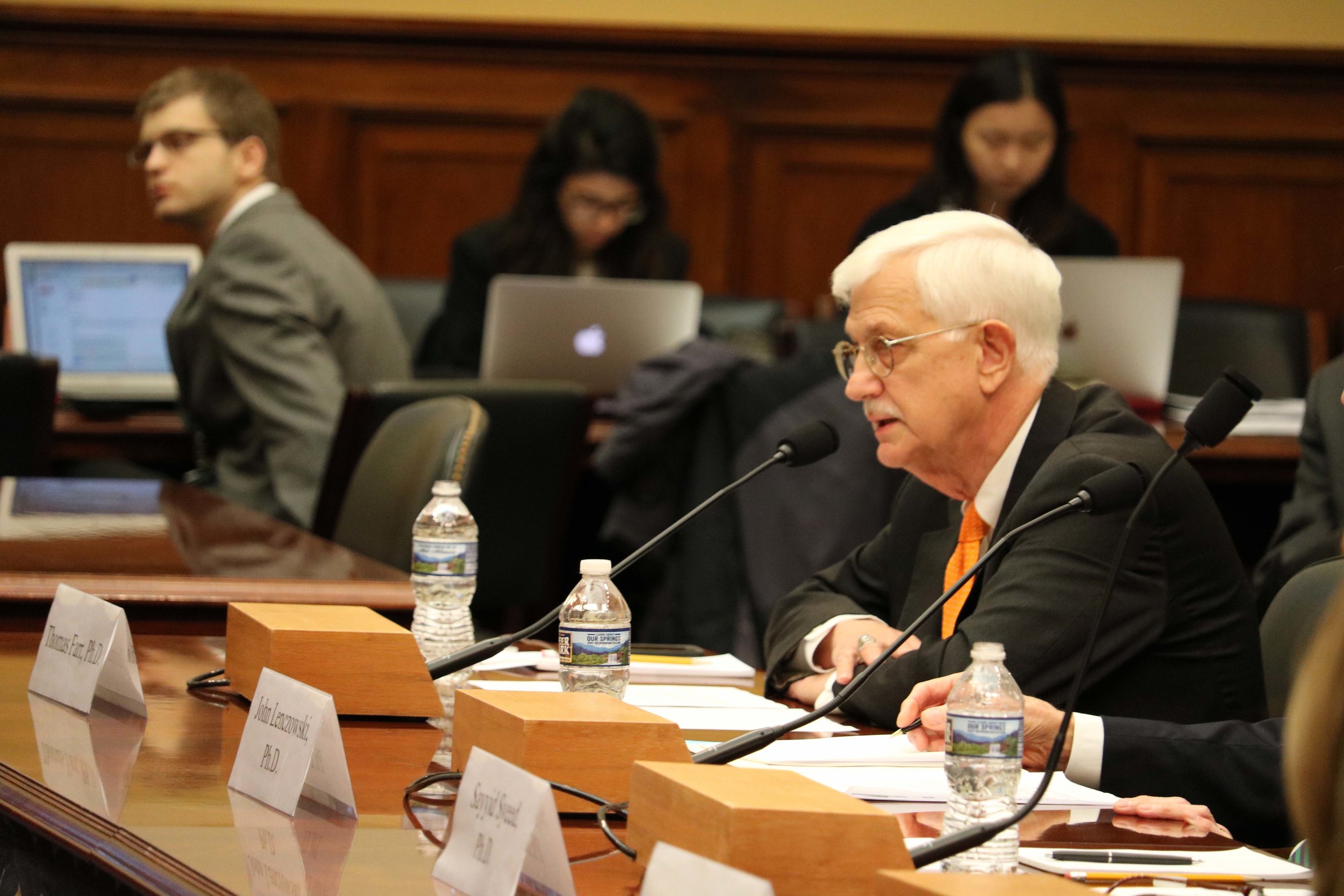In December, I testified before Congress on why more effective international religious freedom diplomacy is of strategic importance for the United States.
My testimony focused on three main points.
Thomas Farr testifies before the Subcommittee on Africa, Global Health, Global Human Rights, and International Organizations of the House Foreign Affairs Committee, December 6, 2017. Photo: RFI/Jeremy Barker
- U.S. International Religious Freedom diplomacy can improve our nation’s ability to combat Islamist terrorism. A growing body of research shows that more religious freedom abroad can help prevent the spread of terrorism and protect Americans here at home.
- Religious freedom can protect fundamental U.S. interests here and abroad by enhancing political, economic, and strategic stability. Stability grounded in religious freedom can strengthen resistance to religious extremism of all kinds.
- A religious freedom diplomacy that employs evidence-based self-interest arguments can reduce religious persecution more effectively than do our current diplomatic methods, which are highly rhetorical, reactive, and ad-hoc.
The bipartisan International Religious Freedom Act, which formally established U.S. religious freedom policy, was enacted in 1998. However, the United States’ implementation of the Act has consisted primarily of verbal advocacy for human rights—urging foreign governments to protect their citizens by adhering to international norms. Similarly, we have carried out this policy through annual reports and lists of particularly severe violators and through rhetoric condemning persecutors.
Not only has this mode of U.S. action been insufficient, it has not been integrated into a national strategy.
The reasons for our inertia and ineffectiveness are complex, but as I argued in my 2008 book World of Faith and Freedom, they derive in part from an aggressively anti-religious form of secularism in our own political culture.
Unfortunately, there also are powerful reasons why our fragmented approach to religious freedom policy is staunchly resisted by foreign societies and their governments. Although each society is different, it often comes down to this: No nation responds well to outside condemnations of its policies on religion or to exhortations to alter them.
Fortunately, the Religious Freedom Institute has accumulated substantial empirical evidence that indicates a causal relationship between religious freedom and other vital social goods. These include political stability, economic development, the equality of women, increased literacy, and undermining violent religious extremism.
By marshaling this empirical evidence and targeting the self-interest of each key society, U.S. policy can transcend mere rhetoric and advance our national security by demonstrating the potential benefits of religious freedom to that society.
Further, our foreign policy and national security leadership must make a conscious decision to integrate religious freedom into our national security strategy, and to increase the diplomatic energy and resources devoted to promoting sound religious freedom policy.
We will prevail against Islamist extremism and terrorism only when we take each of these steps and adopt a clear-eyed set of policies and programs that show governments how religious freedom can advance their own interests.
Thomas Farr is President of the Religious Freedom Institute and Director of the International Religious Freedom Policy Action Team.
THE RFI BLOG

Is Egypt’s Government Trying To Take Over Christianity’s Most Important Monastery?

Does Southeast Asia Lead the World in Human Flourishing?

RFI Leads Training Session on Religious Freedom Law and Policy for U.S. Army War College

Oral Argument in Charter School Case Highlights Unconstitutional Motives Behind OK Attorney General’s Establishment Clause Claim

Largest Longitudinal Study of Human Flourishing Ever Shows Religion’s Importance
CORNERSTONE FORUM

Reaffirming Religious Freedom: Bridging U.S. Advocacy and Iraq’s Constitutional Framework

Political Polarization, Same-Sex Marriage and Religious Liberty

Bridging the Gap Between International Efforts and Local Realities: Advancing Religious Freedom in the MENA Region

Challenges to Religious Freedom in Iraq and the Critical Need for Action


